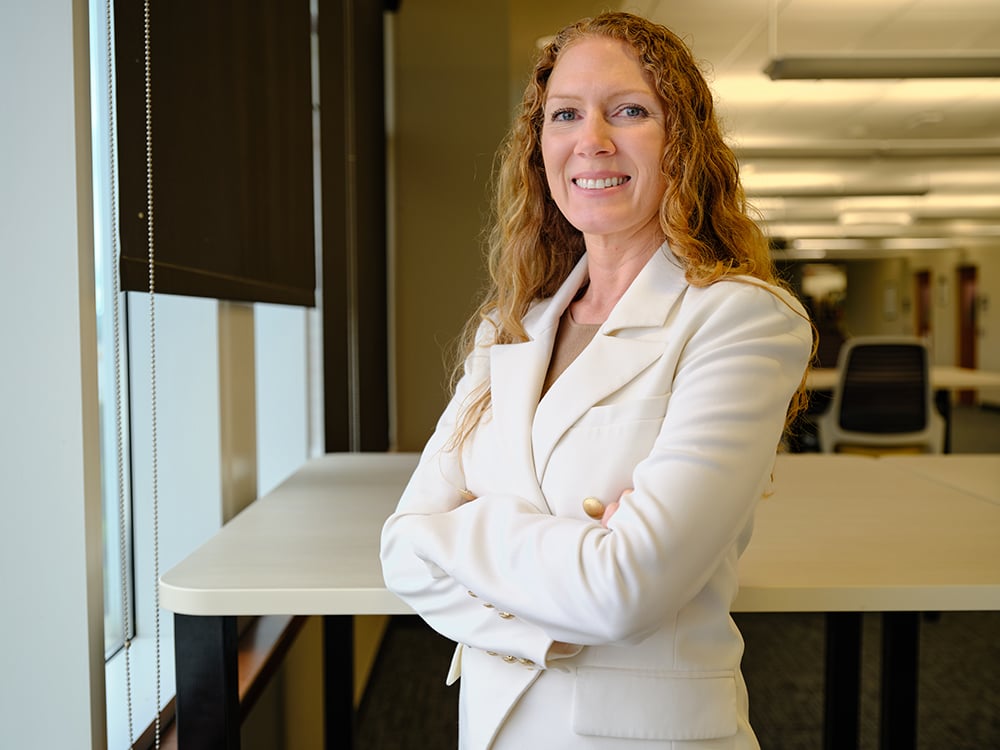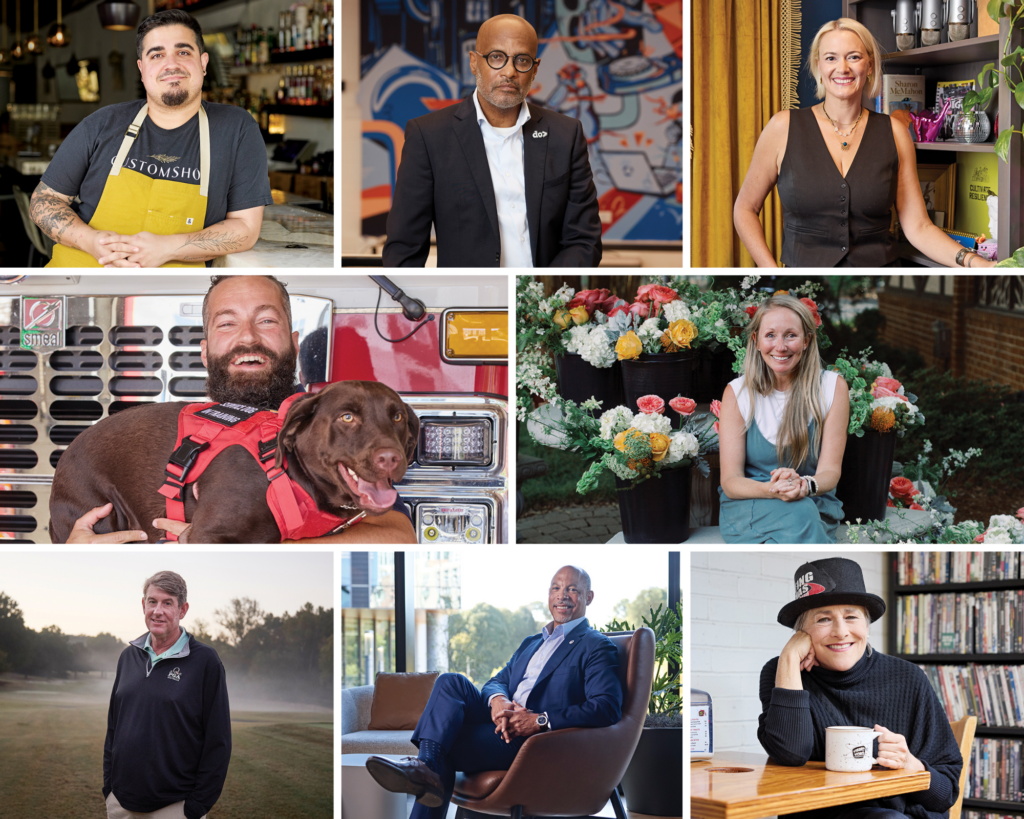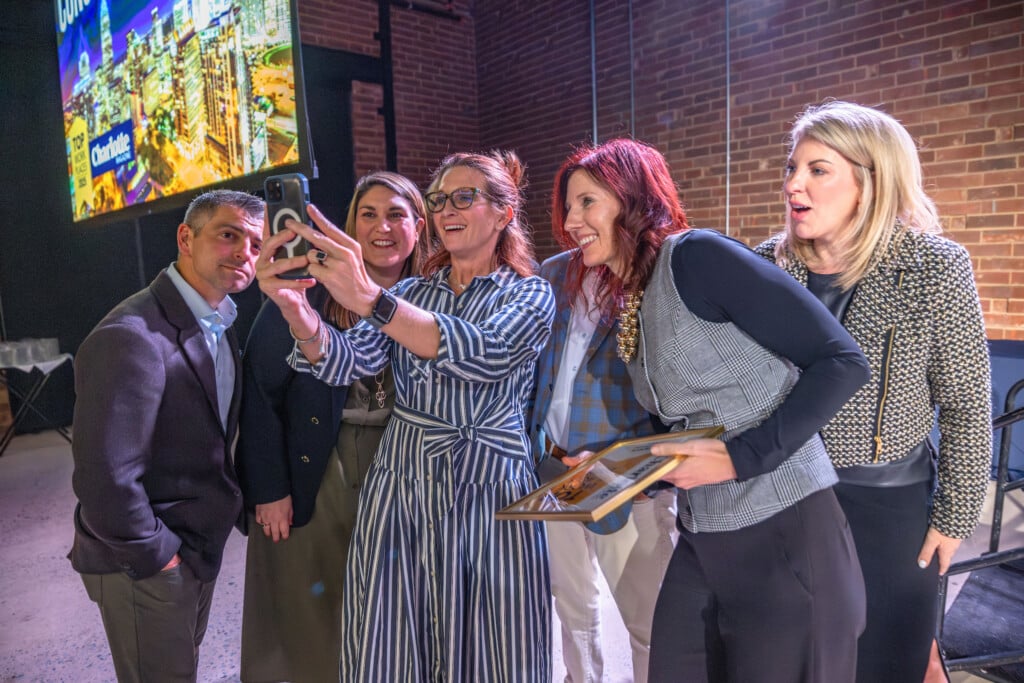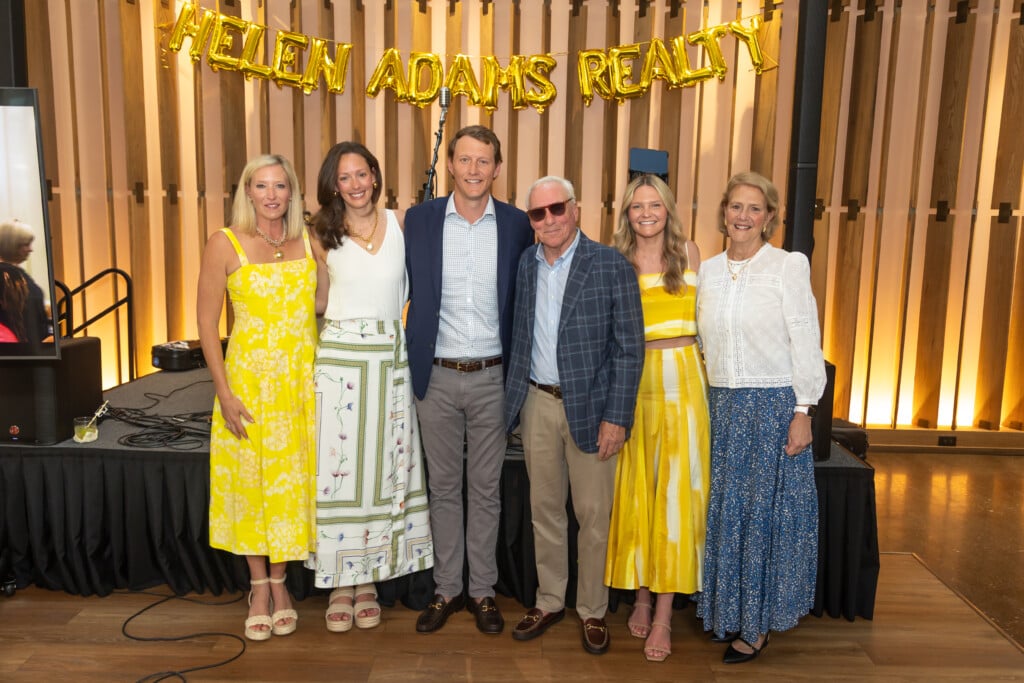Charlottean Jennifer Pagán Has Revolutionized Water Filtration
The electrical engineer and chief technical officer at AquiSense brought an outsider’s perspective that changed the industry

As a girl, Jennifer Pagán followed her curiosity into the wilds of her backyard in then-rural north Charlotte, where she’d chase bugs and come home covered in mud. She read book after book, but she wanted to get her hands dirty and experience the world firsthand. She begged for a chemistry set, and when it arrived, the instruction manual fell by the wayside. She’d design the science herself.
Later, equipped with a doctorate in electrical engineering from UNC Charlotte, she wondered: Could ultraviolet light filter water? Most water is filtered with mercury lamps—a risk, since mercury is toxic. The lamps are inefficient, too. They take a long time to warm up, and the bulbs are quick to degrade. After much trial and error, Pagán and her colleagues developed a “flow cell,” which harnessed UV light to damage the DNA of pathogens and render them incapable of causing disease. More than 2 billion people around the world lack reliable access to clean drinking water. Pagán’s technology had the potential to advance a vital industry.
Today, the Charlotte company she co-founded, AquiSense, produces technology that’s used to disinfect water on every continent, and beyond: The company’s systems provide clean water to astronauts on the International Space Station. Pagán, 49, says her younger self, the one conducting messy experiments in her backyard, would be proud—but not a bit surprised.
Here’s Pagán in her own words, edited for clarity.
I’m a rare Charlotte native, the youngest of five. My parents are both from Charlotte, so I’m entrenched in the community. All my siblings live in the metro area. I grew up in north Charlotte, in Derita. It doesn’t exist as I knew it anymore. I went to Derita Elementary School and North Meck High School. There are probably a million schools that service that area now, but back then, it was still semi-rural.
I’ve always been interested in science. I was the kid who would catch lightning bugs. I had a mail-order chemistry set and microscope growing up. You would get the supplies, and you’d do all these different experiments. I would always go rogue with the experiments—very exploratory, messy work. My poor mom had to wash so many clothes because I was playing in the mud or doing messy experiments.
I was always a good student, and I’ve always been curious. I was a prolific reader and still am, but I wanted to be hands-on and experience things myself. I did not expect to be a scientist, though. I did the typical kid thing where you want a million different careers. In fact, I was a vocal performance major in college. I was part of a lot of church youth groups and singing groups, and music was a big part of my life.
Every aptitude test I took in high school said my strengths were in the humanities. But while I love reading and the arts, that didn’t fire me up. Within my first semester at college, I realized, This is not what I want. Like almost every other college kid, I switched my major—but what’s not typical is that I switched from music to electrical engineering.
I almost failed out of engineering school. I didn’t know what a resistor was. I was coming in behind everyone else. I felt like everyone had taken some sort of electronics class or had parents who were engineers. None of that was true for me. I was a first-generation college graduate, so it was an uphill battle. But I was really curious, and I enjoyed it. I minored in physics, then got my Ph.D. in electrical engineering, too.
I was often the only female in my classes. I went into a graduate class once, and a lot of the instructors already knew me, but this one didn’t, and they were sure I was in the wrong class. They asked me twice if I was sure I was in the right class. That was a little insulting.
I’d always enjoyed optics. In undergrad, I got to do some biomedical optical work. I worked with lasers and light-emitting diodes, and I went into an optics field—building the optics—before I went back for my Ph.D. I’ve always been in hardware, actually building things. It’s very challenging, but it’s rewarding because you can see the fruits of your labor.
I realized I was limited by just having my master’s, and I really wanted to do more design work, so I went back for my Ph.D. I was working on LEDs at the university and started working for a small startup. We decided to move from green LEDs, which was the topic of my dissertation, into ultraviolet LEDs. I, along with a couple of colleagues, developed this novel reactor for disinfection. That was the birth of these ultraviolet LEDs, which can inactivate microbes in drinking water and make it safe for us to consume.

AquiSense products include the PearlAqua Deca 30C for commercial and residential use. The devices use LED arrays that emit UV light, which damages pathogens’ DNA and renders them inactive.
Almost all modern water disinfection uses UV sources that contain mercury, which is a neurotoxin. The LEDs are a safe alternative. They don’t contain mercury, and they pose no risk to human health. We partnered with a company called Aquionix to develop the world’s first commercial point-of-use water disinfection system. Then, after a couple of years, they decided not to pursue the technology. But the president of the company at the time and I felt like the technology was ready, so we formed AquiSense.
The development was a lot of trial and error. It didn’t start as an idea for disinfecting water; it started as an optics question. I firmly believe that with technology, it helps to not be in the industry. I knew nothing about water disinfection. I’d never even seen a water disinfection system. I was, at heart, a semiconductor physicist. I knew a lot about light sources, LEDs, lasers, and optics, but I didn’t know anything about plumbing and drinking water and how a municipal distribution system works.
There were dark times. I sometimes didn’t know if I was going to get a paycheck. Any small-business owner understands that struggle. But if you believe the technology is a positive move for the industry and that positive use matches up with the commercial timing, then you want to keep pursuing it. If it’s a win-win and you believe in it, then it’s worthwhile to miss a paycheck.
You have to take leaps of faith. We’ve had funding fall through. We basically bootstrapped the funding for the company, and within two years, we sold to a Japanese LED manufacturer. We were the No. 1 customer for their LEDs, so they purchased us, and that allowed us to grow. We created the LED water disinfection market. It didn’t exist before us. It was mainly small systems—what would be in your bottle filler in the airport or in an ice machine—but fast-forward seven years, and we have almost half a million systems installed worldwide.
Our Japanese parent company exited the LED market, so we executed an employee buyback at the end of 2024. Everyone was offered a stake in the company. We have guys on our factory floor in Kentucky who are now company owners.
We traveled full circle, and now we’re expanding our product range. We’re doing drinking water or wastewater treatment for cities and municipalities. The Las Vegas Valley Water District has a number of our units installed on its drinking water wells. We have a wastewater installation in Canada and one in Europe. We’re disinfecting the drinking water for the astronauts. Our system is in orbit.
My family is very proud. They’re supportive. My sisters will repost things. My brothers are like, “Why aren’t you making me a lightsaber?”
I still sing. I sang with the Carolina Voices, and I sing with my church, but my bigger hobby now is running kids around to sporting events. I’m a mom to two teenage boys. My oldest is going to college in the fall. My husband travels for work a lot. He’s also entrepreneurial, and we’re always talking about ideas. I’m constantly looking for the next new thing.
I wondered if I’d have to pivot again to keep things interesting, but there have been a lot of engineering challenges. No one knew how to take these small LED sources and make a large system. There’s still fundamental science going on, too. A new area we’re looking at is whether we can do anything to filter out forever chemicals. There are things we’re doing in the pharmaceutical industry; some of them are disinfection, some are photochemical. The market for ultraviolet continues to grow because there are so many applications. It’s a golden age for this technology.
There are things I love about management and things I don’t love. Everyone has a personality, and engineers and scientists have … well, it’s like managing artists, right? They’re creative people, and they all have different personalities, but when you get good chemistry between a group, they can produce incredible things—things where you’re like, “We’ve got to file a patent for that.” Those aha moments make all the hassle worthwhile.





